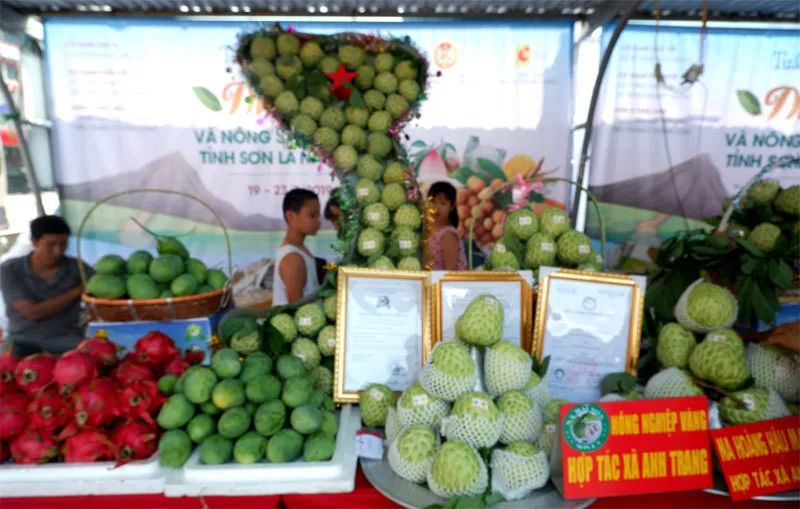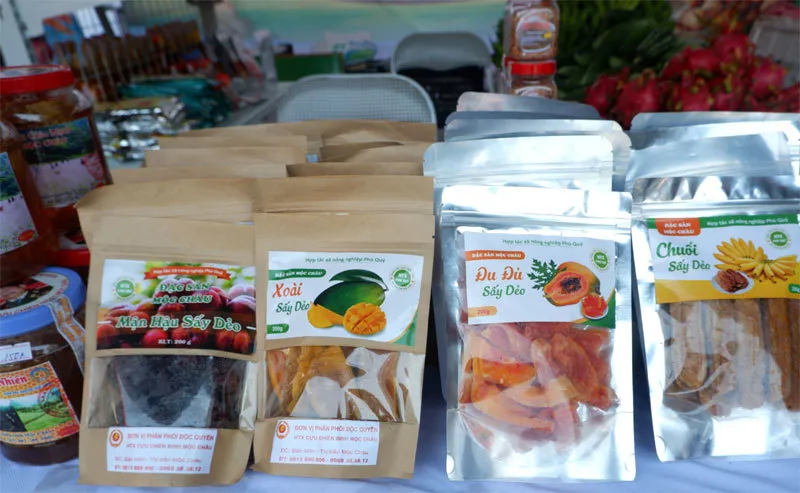Hanoi expands safe supply chains
Cooperation between Hanoi and other localities under the Coordinated Program to Ensure Food Safety has made an important contribution to securing sources of supply, especially during holidays.
Hanoi and 43 other provinces and cities across the country have so far worked together to build 997 safe supply chains of agricultural products, according to Ta Van Tuong, Deputy Director of the city's Department of Agriculture and Rural Development.
"Out of a total of 997 chains, Hanoi has developed 159, many of which are self-contained from production to distribution and consumption, so they have created strong brands in the domestic and international markets, such as Van Duc safe vegetable chain, Hoang Long Cooperative meat chain, Dien grapefruit fruit chain, Dai Thanh longan, Bao Minh rice, and others," Tuong said.
Hanoi is a potential consumer market for agricultural and food products thanks to its large population, and the demand for safe food is huge. Some cities and provinces have developed many chains to supply Hanoi, such as Son La with 144 chains, Hoa Binh with 65, Lao Cai with 53, Hung Yen with 41, Dong Thap with 28, Lam Dong with 15, and Tien Giang with 20.
An event to promote Son La agricultural products at Big C Thang Long supermarket in Hanoi. Photos: Thoi Nguyen/The Hanoi Times |
"Strict quality control of agricultural and food products in the market is always the focus of provinces and cities to further strengthen coordination in building safer food supply chains," Tuong told The Hanoi Times.
Cooperation between Hanoi and other localities under the Coordinated Program to Ensure Food Safety has made an important contribution to securing sources of supply, especially during holidays.
According to Nguyen Nam Phong, director of the Vinh Kim Cooperative in Tien Giang Province, in an effort to expand the market for Tien Giang fruit products, the cooperative opened a branch in the capital two years ago.
"Currently, Vinh Kim Cooperative sells about 50-60 tons of fruit per year in the Hanoi market through supermarkets, convenience stores, and agricultural product processing units and enterprises," Phong told the Vietnamese Government Portal (VGP).
Nguyen Minh Hieu, director of Tien Giang's Department of Agro-Forestry-Fisheries Quality Management, said the province and Hanoi have also set up four chains of agricultural products, including dragon fruit, mango, durian, and star apple. "The supply to the capital's market is estimated at 1,200 tons per month," Hieu said.
Cam Thi Phong, deputy director of Son La's Department of Agriculture and Rural Development, said the province currently has 242 supply chains of safe agricultural, forestry and fishery products, 84 of which have provided about 7,200 tons of vegetables and fruits and 290 tons of processed food for Hanoi's consumers.
In addition to fresh fruit, many of Son La's agricultural products are dried for domestic sale and export. |
"Coordination between the province and Hanoi has helped Son La's cooperatives find a stable consumer market and adjust their production plans to meet market demand," Phong said.
Hoang Van Vuong, a representative of the Trai Son Organic Agricultural Cooperative in the northern province of Hoa Binh, told The Hanoi Times that the cooperative has signed a contract to supply vegetables to supermarket chains Winmart, BigC and clean vegetable stores in Hanoi. On average, the cooperative harvests and sells 1-2 quintals of safe vegetables per day.
Deputy Director of the Municipal Department of Agriculture and Rural Development Ta Van Tuong said that in 2023, the department tested nearly 200 samples of agricultural, forestry and fishery products sold in Hanoi from other provinces and cities. Of the total, more than 180 samples met standards, and nine were found to violate food safety standards. For the substandard samples, the department immediately notified provinces and cities to trace the origin and address violations.
"We will step up inspections and take samples for testing to monitor product quality, while promoting the use of information technology in traceability and QR codes to make product information transparent in the market," Tuong emphasized.













